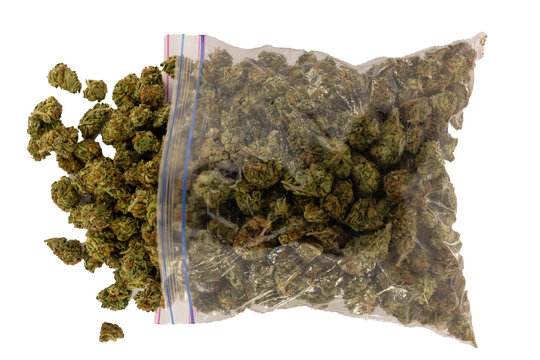Guelph, Ontario, stands at the forefront of a rapidly evolving cannabis delivery landscape. With the province’s regulatory framework solidifying and consumer demand increasing, the future of Weed Delivery in Guelph is poised for significant transformation.
Regulatory Landscape and Legal Framework
In Ontario, cannabis delivery is governed by specific regulations. Retailers are permitted to offer delivery services between 9 a.m. and 11 p.m., and all transactions must be conducted online or via phone. Notably, retailers are prohibited from operating exclusively as delivery businesses, ensuring that physical storefronts remain integral to the retail experience.
Guelph adheres to these provincial laws, permitting residents aged 19 and over to possess up to 30 grams of dried cannabis in public and to cultivate up to four plants per residence for personal use . These regulations provide a stable foundation for the growth of cannabis delivery services in the city.
Market Dynamics and Consumer Preferences
The Weed Delivery in Guelph has experienced substantial growth. For instance, in the fourth quarter of 2024, total cannabis sales reached approximately 24.6 million units, with dried cannabis accounting for 50% of the sales . This trend reflects a broader shift towards online and delivery-based purchasing models.
In Guelph, several local dispensaries have embraced this shift. For example, CANJA Cannabis, a family-owned boutique, offers both delivery and pickup services, emphasizing a personalized shopping experience . Similarly, I Love Smoke provides same-day delivery across various neighborhoods in Guelph, catering to the growing demand for convenience.
Consumer preferences are also evolving. There is an increasing demand for a diverse range of products, including edibles, concentrates, and topicals. Additionally, consumers are seeking transparency regarding product sourcing and quality, favoring businesses that offer locally sourced and ethically produced cannabis.
Technological Innovations Shaping Delivery Services
Advancements in technology are revolutionizing cannabis delivery services. The integration of mobile applications allows customers to place orders, track deliveries in real-time, and receive personalized product recommendations. These apps enhance user experience and streamline the ordering process.
Moreover, innovations in logistics, such as the use of AI for route optimization and blockchain for secure transactions, are improving delivery efficiency and reliability . These technologies not only expedite delivery times but also ensure compliance with regulatory standards, thereby fostering consumer trust.
Challenges and Regulatory Considerations
Despite the promising outlook, several challenges persist. Regulatory constraints, such as the prohibition on delivery-only cannabis businesses, limit the operational models that dispensaries can adopt. These regulations necessitate a balance between physical storefronts and delivery services, which can impact scalability and operational efficiency.
Additionally, logistical challenges, including traffic congestion and delivery delays, can affect customer satisfaction. To mitigate these issues, some services are exploring partnerships with local couriers and implementing advanced routing technologies.
Future Outlook and Opportunities
Looking ahead, the cannabis delivery landscape in Guelph is set to expand. The integration of emerging technologies, coupled with a consumer-centric approach, will drive innovation in delivery services. Businesses that prioritize sustainability, transparency, and community engagement are likely to resonate with Guelph’s socially conscious consumer base.
The future of Weed Delivery in Guelph looks promising, fueled by evolving consumer habits, technological advancements, and a regulatory environment that increasingly accommodates online sales. One of the most significant opportunities lies in digital innovation.
Mobile apps, AI-driven recommendations, and personalized shopping experiences will allow dispensaries to better understand and serve their customers. Imagine a platform where consumers can receive tailored product suggestions based on previous purchases, desired effects, or lifestyle preferences, this level of personalization will likely become a standard expectation.
Sustainability is another area poised for growth. Weed Delivery in Kitchener has a socially conscious population that values eco-friendly practices. Delivery services that adopt sustainable packaging, electric vehicles, or carbon-neutral logistics can differentiate themselves in the market. Partnering with local producers and promoting locally grown or ethically sourced cannabis can further appeal to environmentally aware consumers.
Community engagement and education will also become key differentiators. Weed Delivery in Guelph, companies that invest in educational content, virtual workshops, or in-person events to inform customers about responsible consumption, strain differences, or health benefits will foster trust and loyalty. Building a reputation as a knowledgeable, responsible provider can help dispensaries stand out in a competitive market.
Finally, logistics and efficiency innovations will shape the competitive landscape. AI-driven route optimization, real-time tracking, and predictive inventory management can reduce delivery times and operational costs. Integrating blockchain or secure verification systems will enhance compliance with provincial regulations, ensuring safe and legal transactions.
Conclusion
The future of Weed Delivery in Guelph is characterized by a confluence of regulatory clarity, technological innovation, and evolving consumer preferences. While challenges remain, the opportunities for growth and differentiation are substantial. By embracing technological advancements and aligning with consumer values, cannabis delivery services in Guelph can navigate the complexities of the market and emerge as leaders in the industry.








